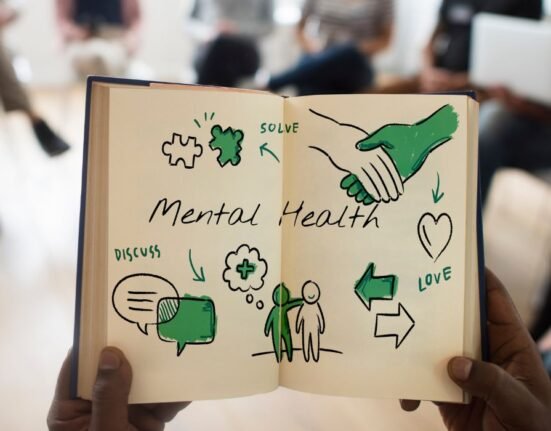GenZ has become quite famous for using (maybe over-using at times) terms related to Mental Health. “You are such a narcissist”, “I am in my depressive phase”, “I have OCD that’s why”, etc. are thrown around so casually, that the seriousness of the disorder is taken away. One such disorder is attention deficit hyperactivity disorder, commonly known as ADHD.
The reasons for ADHD are numerous and intricate. Significant influence is played by genetic variables, which are more likely to occur in families. Environmental factors also have a role, including lead exposure, early birth, and exposure to alcohol or smoke during pregnancy. Other causes include variations in brain structure and function, notably in regions controlling attention and impulse control. A 42.0% increase was reported by the National Survey of Children’s Health between 2003 and 2011.
What do we know about ADHD?
No, it is not just related to unable to focus or very little attention span. ADHD is a type of neurodevelopmental condition that can impact both adults and children. It is distinguished by a recurring pattern of impulsivity, hyperactivity, and inattention that obstruct normal growth or day-to-day functioning.
Read More: Why ADHD is a Superpower?
Envision a classroom that Rahul, a child with ADHD, attends. He has trouble focusing on his teacher’s instructions, is always fidgeting, and answers questions without raising his hand. His impatience frequently results in arguments with classmates, which hinders his ability to build friendships. His father Rohan, on the other hand, has ADHD as well, albeit he handles it differently. Rohan frequently loses track of crucial papers and misses deadlines, making it difficult for him to finish work projects on time. While Rahul’s hyperactivity is obvious, Rohan struggles with organization and responsibility management. Both suffer from the effects of ADHD, but how it affects their daily challenges dramatically as they get older.
What is the Solution Then?
A thorough evaluation process is usually required to diagnose ADHD. This includes, among other things, a mental health professional interview, the use of standardized checklists or questionnaires, such as the Conners Rating Scales, behavioural observation, a physical examination to rule out misdiagnosis, and the collection of data regarding the patient’s academic achievement and developmental milestones. This provides additional diagnostic assistance from an official source.
Read More: ADHD & Social Skills
But You can Help out too!
We are not asking you if you can diagnose ADHD, but there are some signs or symptoms that might indicate that you can use the official channel. This section is hence divided into two parts where firstly, for parents to help look at signs of ADHD in their kids, and for adults, who might relate. Hence, starting with parents:
- Inattention: Your child often daydreams in class and doesn’t finish their homework.
- Easily Distracted: They get sidetracked by noises or movements around them, like a bird outside the window.
- Impulsivity: Your child interrupts conversations or blurts out answers before the question is finished.
- Hyperactivity: They can’t sit still during meals or fidget a lot when asked to be quiet.
- Difficulty Following Instructions: Your child struggles to follow multi-step directions, like “Put your shoes on, grab your backpack, and come to the car.”
- Forgetfulness: They frequently forget to bring their lunch or homework to school.
- Difficulty Organizing Tasks: Your child has trouble keeping their room tidy or managing their schoolwork.
- Losing Things: They often misplace toys, school supplies, or other belongings.
- Low Frustration Tolerance: Your child gets upset easily when things don’t go their way, like losing a game.
- Daydreaming: They seem lost in thought during activities or conversations.
Various studies have found that the prevalence of ADHD in India varies between 1.6 to 14%. There have been reports of 7% of school-age youngsters having ADHD. Even while many of these symptoms are typical of typical children, it’s crucial to keep in mind that you should seek professional assistance if they start to have a substantial impact on your child’s everyday functioning, including their capacity to learn, form friendships, or finish tasks. Severe actions or recurring patterns could be signs that your child needs help and direction to grow and succeed.
Read More: How ADHD can Impact your Relationship and How you can (still) Work it out
ADHD in Adults
But ADHD in adults is quite different:
- Inattention: You often forget important meetings or miss deadlines because you get lost in your thoughts.
- Easily Distracted: You find it hard to concentrate at work due to noises, like someone talking nearby or a buzzing phone.
- Impulsivity: You make quick decisions without thinking, like buying something expensive on a whim.
- Restlessness: You feel the need to move around, often tapping your foot or fidgeting during meetings.
- Disorganization: Your workspace is cluttered, and you struggle to keep track of tasks and responsibilities.
- Forgetfulness: You frequently forget to pay bills or return phone calls, leading to stress.
- Difficulty Following Through: You start multiple projects but find it hard to finish them, leaving many tasks incomplete.
- Low Frustration Tolerance: You feel easily overwhelmed and irritated when things don’t go as planned.
- Time Management Issues: You often underestimate how long tasks will take, leading to chronic lateness.
- Chronic Boredom: You get bored easily and have trouble engaging in tasks that don’t interest you, often seeking out new activities.
Does the Official Diagnosis also differ for Both?
Yes! To go in detail:
| ADHD diagnosis in Children | ADHD diagnosis in Adults |
| Interviews are conducted to gather information about the child from both, the child and their parents. Simultaneously, they are also observed by the mental health professional. | Self-report interviews- where conversations about their personal, professional, academic, life as well as their struggles are discussed upon. Usually impulsivity is highlighted when looking for adult ADHD. |
| Questionnaires are typically filled out by parents, teachers, and sometimes the child. For example, Conners Rating Scale. | Similar to children, adults may complete rating scales. For example, the Brown Attention-Deficit Disorder Scale. |
| The mental health professional can also observe the child in classrooms or in their natural settings. This helps analyse their behaviour in a neutral environment. | Input from family members, friends, colleagues (collateral information) may also be taken to analyse their behaviour. |
| Since early infancy is when ADHD symptoms typically manifest, the physician obtains a thorough developmental history that includes milestones and any problems encountered. | Cognitive tests to assess executive functioning, memory, and attention in order to rule out other possible problems. Adults may require a different diagnosis as well because of their more complicated past experiences of mental health problems hence there is a need to be more careful. |
Fostering empathy and support for persons impacted by ADHD requires an understanding of the disorder. There is a lot of promise for research and advancement of diagnosis and symptoms since long-term studies on people with ADHD can offer useful data on symptom progression, therapeutic effectiveness, and life outcomes. Personalised treatment plans can be developed by looking into the efficacy of different therapeutic methods, such as behavioural therapy and lifestyle adjustments.
Read More: Understanding My Child’s ADHD
ADHD is comparable to putting a racing car engine in a car meant for city driving. Although the engine is strong and swift, if the controls aren’t working properly, it can shoot off in all directions, have trouble stopping at lights and occasionally even stall in traffic. While people with ADHD are incredibly fast and creative, they frequently struggle with day-to-day chores. This is similar to how a race car needs specific modifications to be able to handle city roads.
Families may create an environment where individuals with ADHD can find their rhythm, manage the chaos, and make sure they reach their desired destinations in life by recognising the indicators and getting professional support. By advancing knowledge and research, we may assist people with ADHD to succeed in a world that frequently moves too quickly by illuminating additional pathways for them.
FAQs
1. Is ADHD a lifelong condition?
Although ADHD is frequently a lifelong illness, many people are able to effectively control their symptoms.
2. Are there any support groups for individuals with ADHD?
Yes!
- http://www.adders.org.uk/indiamap.htm#:~:text=Indian%20Support%20Groups&text=Through%20brain%20exercises%20and%20cognitive,problems%20due%20weak%20cognitive%20skills.
- https://www.soulup.in/products/support-groups-adulting-with-adhd
3. Can ADHD co-occur with other conditions?
Yes, ADHD can co-occur with other conditions, such as anxiety disorders, depression, learning disabilities, and oppositional defiant disorder (ODD).
4. Can adults with ADHD work like normal people?
Yes, many adults with ADHD can have successful careers.
References +
- CDC. (2024, May 15). Diagnosing ADHD. Attention-Deficit / Hyperactivity Disorder (ADHD); U.S. Centers for Disease Control and Prevention. https://www.cdc.gov/adhd/diagnosis/index.html
- NHS. (2018, June 1). Attention deficit hyperactivity disorder (ADHD) – Diagnosis. Nhs.uk. https://www.nhs.uk/conditions/attention-deficit-hyperactivity-disorder-adhd/diagnosis/#:~:text=There
- Parekh, R. (2022). What is ADHD? American Psychiatric Association. https://www.psychiatry.org/patients-families/adhd/what-is-adhd
- Roberts, D. (2018, April 16). Signs of ADHD: Symptoms in children and adults. Www.medicalnewstoday.com. https://www.medicalnewstoday.com/articles/321507
- Suthar, N., Garg, N., Verma, K. K., Singhal, A., Singh, H., & Baniya, G. (2018). Prevalence of Attention-deficit hyperactivity disorder in primary school children: A cross-sectional study. Journal of Indian Association for Child and Adolescent Mental Health, 14(4), 74–88. https://doi.org/10.1177/0973134220180405
- Ziyar, L. (n.d.). ADHD in Adults vs. Children: Latif Ziyar, MD: Psychiatrist. Www.latifziyarmd.com. https://www.latifziyarmd.com/blog/adhd-in-adults-vs-children













Leave feedback about this